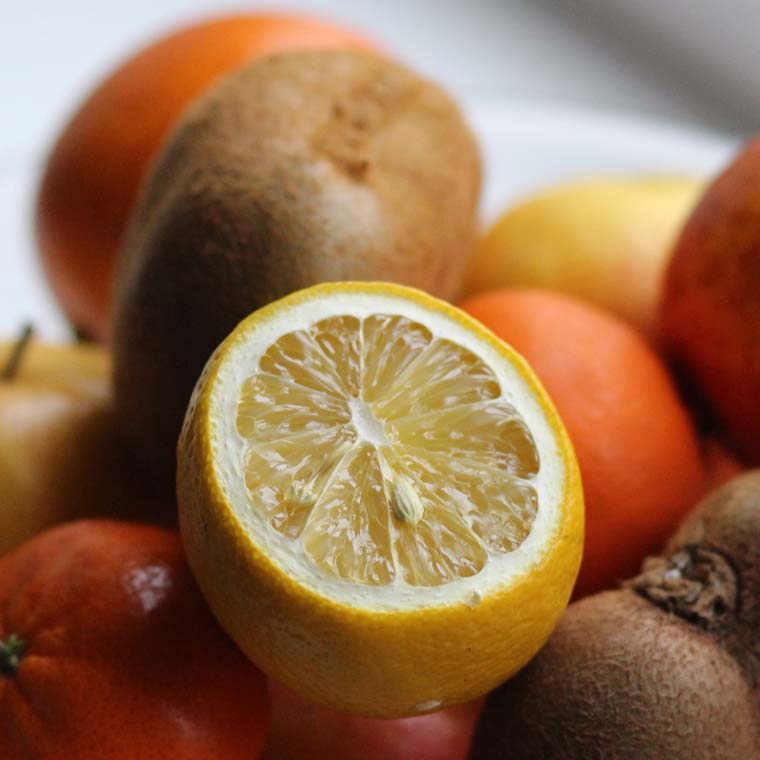
What nutrients influence the functioning and development of the immune system?
Foods for the immune system and defenses: what to eat
Keeping our digestive system in good shape significantly helps our immune system. An inadequate diet, with a shortage of fiber and an excess of fried foods and saturated fats, excessive intake of coffee, sugar and alcohol adversely affects the immune system. Prolonged treatments with antibiotics, corticosteroids and laxatives can also reduce its function.
On the other hand, a balanced diet can help our defenses. For example, the Mediterranean Diet has proven for many years that it is a beneficial factor for the body thanks to its richness in nutrients, vitamins, antioxidant substances and the healthy benefits of olive oil.
What nutrients influence the functioning and development of the immune system?
There are six main classes of nutrients that the body needs: carbohydrates, proteins, fats, vitamins, minerals and water.
According to the World Health Organization, the real challenge today in developed societies is the deficiency of specific micronutrients (vitamins, minerals and essential amino acids) that prevent the body from ensuring growth and maintaining its vital functions.

Micronutrients: vitamins and minerals for the immune system
Micronutrients are nutrients required by the body in very small amounts, but they are still essential and vital for the proper functioning of the body. According to their chemical nature, they are classified into minerals (inorganic substances) and vitamins (organic substances) and the latter are in turn classified on the basis of their solubility into water-soluble and fat-soluble.
Micronutrients provide elements for an optimal immune system function on three levels: in strengthening physical barriers (skin and mucous membranes), in cellular immunity (which depends on white blood cell types), and in humoral immunity (antibody production).
Let's look at some examples of the properties of these micronutrients and in which foods we can find them:
Vitamin C and Vitamin E:
Among its properties is being antioxidants par excellence. The function of the cells of the immune system is strongly influenced by the balance or equilibrium of antioxidant substances, playing a fundamental role in the protection of immune cells against oxidative stress. In addition, they have been shown in studies to stimulate the production of immunoglobulins and the response of white blood cells.
Foods rich in vitamins C and E are: melon, kiwi, citrus, red fruits, broccoli, nuts (walnuts, almonds, hazelnuts), seeds (sunflower seeds, sesame, and linseed), among others.
Group B vitamins:
These are essential for all processes in the body, and help provide the energy needed for the immune system to function. They also participate in the processes of immune cell formation, such as lymphocytes.
Foods rich in B vitamins are: whole grains, dairy products, meat and fish. Within the B group, vitamin B6 stands out and we can find it in unprocessed vegetable sources such as bran and wheat germ, nuts, legumes, potatoes, raw carrots, green beans, raw broccoli, bananas, orange juice, among others. Garlic (whose main active ingredient is allicin) is rich in vitamins B, A and C, but also contains various enzymes, amino acids and minerals such as selenium that are useful in the proper functioning of the immune system.
Vitamin A:
This plays a fundamental role in the development and maintenance of our body's mucous membranes (eyes, nose, mouth) and skin, which are our first defense barriers against harmful agents such as viruses and bacteria, among others.
Foods rich in vitamin A are: colorful fruits and vegetables such as carrots, spinach, sweet potatoes, tomatoes, broccoli, mango, melon, apricot, as well as pork or beef liver that are also food sources of vitamin A.
Zinc:
This exerts a multitude of effects on numerous types of immune cells and is involved in the defense against oxidative stress caused by free radicals that are produced and released by white blood cells when they defend our body from microbes. A healthy adult human body contains 2 to 3 g of zinc, and needs about 15 mg of dietary zinc per day, which is stored in the bones.
Foods rich in Zinc are: hazelnuts, almonds, oats, red meat, fish, eggs, cereals and dark chocolate, all of which provide good amounts of zinc.
Iron:
This is an essential element, since it is directly involved in the transport of oxygen through the blood to all our tissues, so a decrease in the amount of iron affects the oxidative capacity of the immune system and the ability to fight infections.
Foods that are rich in iron are: beef or pork liver, red meat, fish, seafood such as clams and cockles, spinach, legumes, pistachios, pumpkin seeds, quinoa, tofu, eggs and, to a lesser extent, dairy products, among others.
Magnesium:
The presence of magnesium stimulates the immune system's ability to fight infection by activating all the immune cells.
Foods rich in magnesium are: wheat bran, chives, mint, pumpkin seeds, flax, sesame and sunflower seeds, nuts, soybeans, and cashews, among others.
Copper:
Copper forms part of the structure of many proteins, and is involved in the metabolism of iron, amino acids, and others. It contributes both to normal immune function and to protection from oxidative damage.
Foods rich in copper are: chocolate, legumes, nuts, cereals, dried fruits, poultry and seeds.
Amino Acids and Proteins
These are elements of special importance for the production of antibodies, immunoglobulins, the formation of white blood cells and the functioning of organs with immune function such as the spleen and thymus.
Amino acids of special importance are:
Arginine
Arginine stimulates the growth and function of lymphocytes. You can find it in foods of animal origin such as fish, pork, beef, chicken, turkey, and in products of plant origin such as peas, beans, vegetables, etc.
Glutamine
Glutamine in conjunction with glucose is a source of energy for the immune system as it facilitates adequate production of lymphocytes and cytokines. In addition, it has a positive effect on the integrity of the intestinal mucosa and helps to maintain the barrier function intact against possible infections. You can find glutamine in good proportions in red cabbage, milk, eggs, yogurt, parsley, radishes, chard, asparagus, among others.
Cysteine
Cysteine contains sulphur which allows it to form special bonds to maintain the structure of proteins in the body, especially in the skin and mucous membranes. Foods that are good sources of cysteine are fish such as hake, cereals such as rice and wheat, vegetables such as peppers and onions, and meats such as pork, chicken and duck.
Fatty acids
Polyunsaturated fatty acids (Omega series) are an integral part of all cells, tissues and organs of the body, and are involved in numerous immune processes because they are an energy source and because they also help regulate the immune responses.
Include in your diet sardines, tuna, salmon, lean red meat, nuts, soya, and whole grains, among others that can provide you with abundant amounts of Omegas.
Olive oil is a monounsaturated fatty acid type Omega 9, whose properties help the metabolism of the body's lipids.
Carbohydrates
At the immune level, these nutrients play a key role in the cellular immune response, since all immunoglobulins and many other factors in the immune system are bound to a carbohydrate. In fact, the carbohydrate chains attached to proteins have several important functions, including directing the location of viruses, bacteria or fungi to defensive activity. Potatoes, bananas, oats, honey, royal jelly, rice, and whole grains are good sources of carbohydrates.
Your diet can be complemented with dietary supplements in extraordinary situations, so look for the one that best suits your conditions, as only by staying strong and healthy can you help your immune system.





